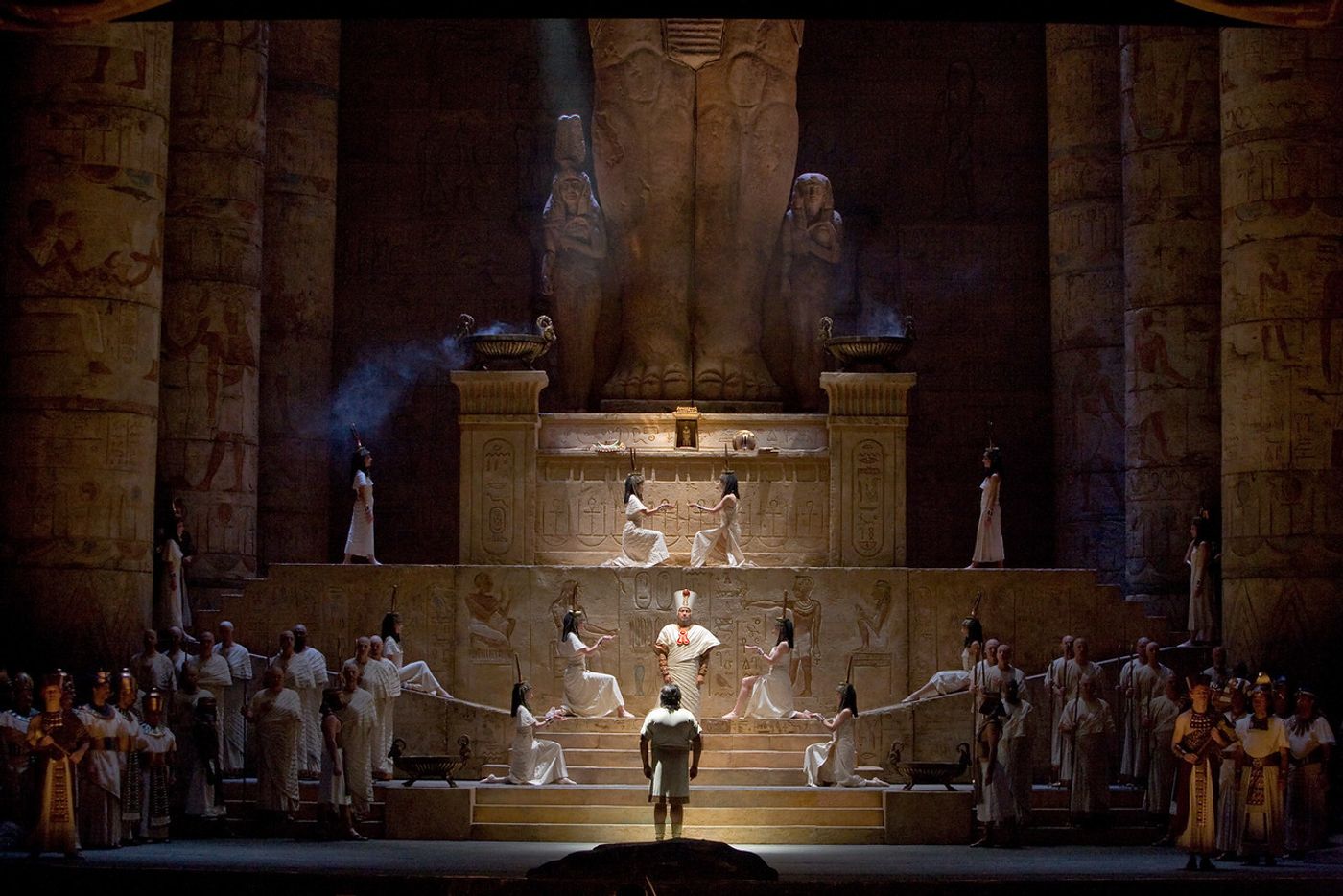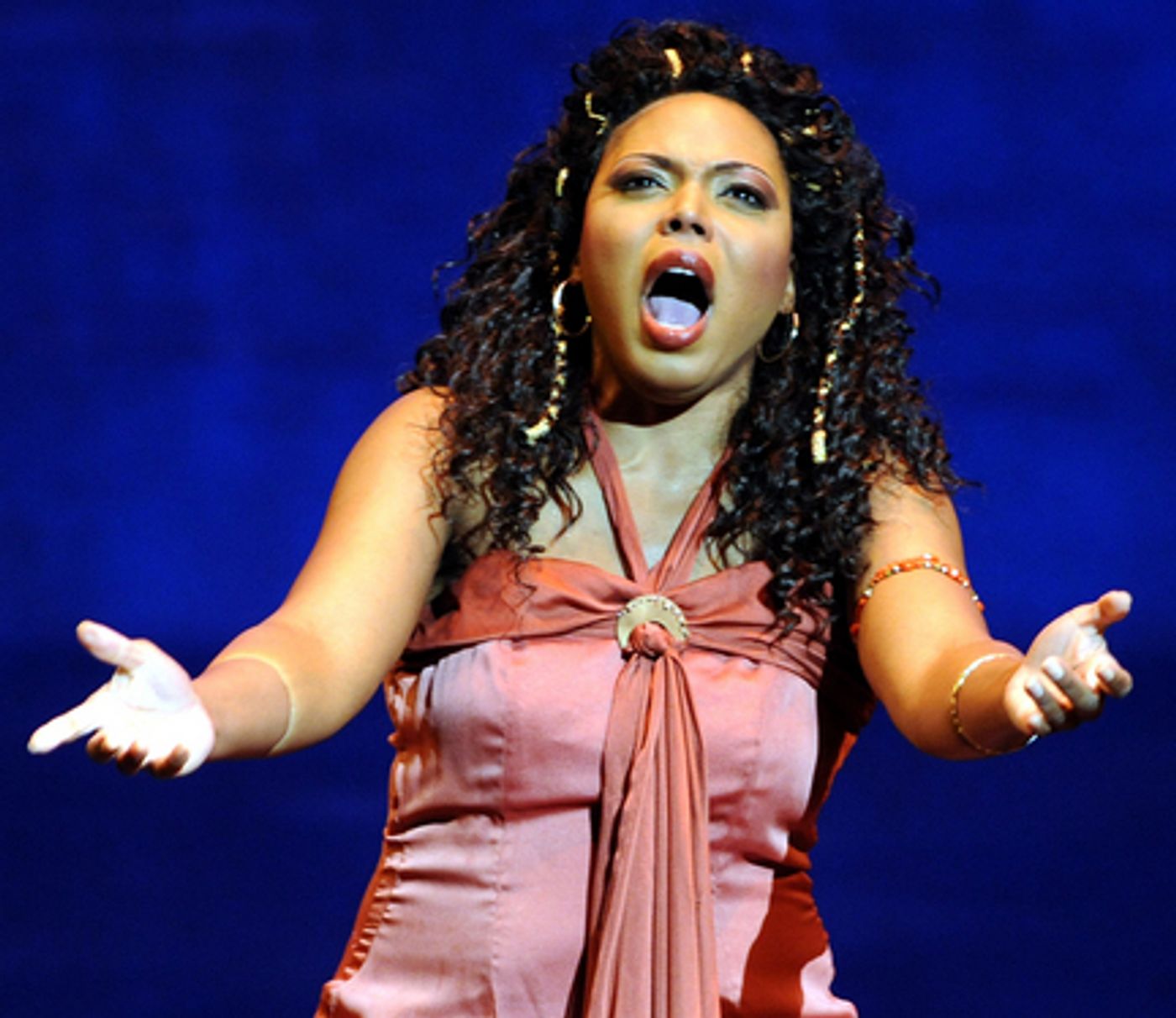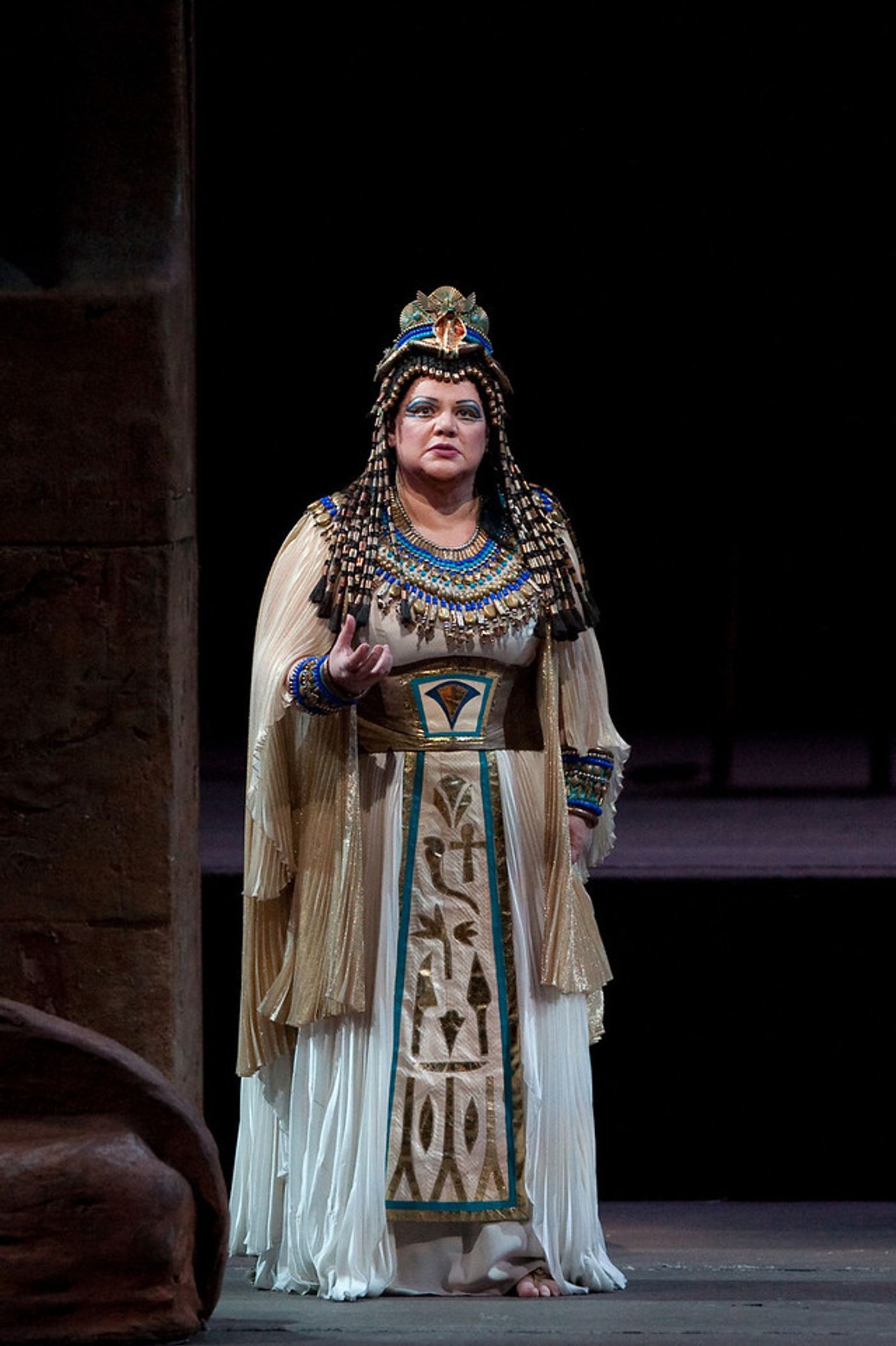Review: AIDA at Metropolitan Opera

Aida has been called the grandest of grand operas and the production that has graced the Met stage for the last (unbelievably) 30 years still looks absolutely amazing - towering columns, massive sandstone blocks, etc. Oddly, the audience did not applaud the sets (as they have in every other performance of this production I've seen - about 10 times). The big news of the night on Monday was the house debut of American soprano Kristin Lewis, who has made a name for herself across Europe in many Verdi roles. Her Radames was tenor Yonghoon Lee who seems to be the Met's go-to-tenor for the bigger roles these days. Amneris was a spunky young kid named Dolora Zajick - this kid is gonna go places!
 Ms. Lewis debut was made possible by the cancellation by Sondra Radvanovsky (who returns for performances in February). Ms. Lewis has a beautiful voice and a nice stage presence - one more rehearsal with the orchestra (if she was given one at all) would have helped. In Act One, her voice seemed under-powered in the big house, and conductor Nicola Luisotti did little to help her. Early on she was drowned out by the swell of the orchestra and at others she sounded oddly exposed.
Ms. Lewis debut was made possible by the cancellation by Sondra Radvanovsky (who returns for performances in February). Ms. Lewis has a beautiful voice and a nice stage presence - one more rehearsal with the orchestra (if she was given one at all) would have helped. In Act One, her voice seemed under-powered in the big house, and conductor Nicola Luisotti did little to help her. Early on she was drowned out by the swell of the orchestra and at others she sounded oddly exposed.
During "Ritorna vincitar," her big notes were ravishing but her phrasing felt choppy and erratic. She gathered steam and seemingly confidence as the night wore on. Her dramatic showdown with Amneris was thrilling and it was clear that the "larger" moments of the evening were going to be her strength. Her portrayal of Aida was a desperate one, not a regal one. She played the role more the Egyptian slave than the Ethiopian princess, an interesting acting choice.
Her "O patria mia," was lovely and she showed why the role is a favorite of hers. For the first time in the evening, her voice was full of bloom and beauty. Interestingly, all of Ms. Lewis' press info characterizes her as a "dramatic spinto," yet for most of the evening, she really sounded like she'd be a bit more at home in full lyric roles - perhaps the size of the house played a part. From time to time when the voice fully unfolded, she sounded glorious and very much the dramatic spinto, but those moments were not always in evidence.
Yonghoon Lee was loud. Very loud. His top notes rang beautifully but his diction came across muddy. His Radames was very much the heroic warrior, passionate to the extreme. His pianissimi felt forced and out of place (including some odd facial expressions). He delivered a full-blooded performance that was long on thrills and short on nuance. His confrontation with Amneris was positively electrifying - old-school stand and belt that hair-raising.
Baritone Roberto Frontali was a fine Amonasro, not terribly exciting vocally or dramatically but steady and consistent. Ramfis was Vitalij Kowaljow, in fine voice and appropriately glum personality. Soloman Howard was a formidable and towering King, in voice and appearance.

And then there was Dolora Zajick. I saw Ms. Zajick perform Amneris in the premier of this production some thirty years ago. She was a force of nature then, and is a wonder of nature now. This was an absolute masterclass in dramatic singing. If you get a chance to hear her in the role this season, don't miss it. Her voice no longer has the wide palate of colors it once did, but who cares! She commanded the stage every time she step on it. Her technique is still rock solid, her diction may even be better than it once was, and her understanding of the role has only deepened with time. The entire fourth act was superb. Beginning with Zajick's incandescent showdown with Radames, straight through the riveting, goose-bump inducing judgement scene.
Conductor Nicola Luisotti got off to a bumpy start but settled in as the performance wore on. The playing of the orchestra was lacking fire for the first two acts, but came to life in acts three and four.
This production was a landmark in its time and it will be missed. It represents a different period in the Met's history (I'll leave it for the reader to judge if it was a better period).
Remaining performances: January 11, 14, 18; February 28; March 4, 7.
Tickets begin at $25; for prices, more information, or to place an order, please call (212) 362-6000 or visit www.metopera.org.
-Peter Danish
Reader Reviews

Videos

